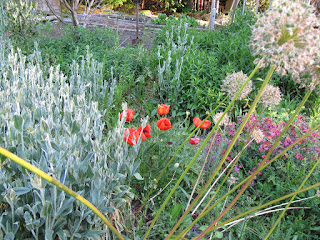Monday 16 April 2012
The Prevailing Epidemic
The trial of Anders Breivik, a man who believes he is saving Norway by bombing and gunning down innocent people, begins this week.
"Breivik is expected to deny terrorism charges at the start of his 10-week trial on Monday. His logic, according to his legal team, is that he carried out the attacks on 22 July last year in "self defence". He has said he intended his attacks as punishment of traitors whose pro-immigration policies were adulterating Norwegian blood." The Guardian.
He is clearly sick even if he is not found criminally insane. Thankfully, most of us could not carry out a mass killing of young people, let alone live with ourselves if we did. We have a conscience, an inner safety valve that keeps us from doing harm to others. Yet he boldly proclaims he is on the verge of making his manifesto, which I refuse to read, a new world order.
Such delusions are not new. There have been many killers who believe they have a ‘divine’ role to play in the world. But it’s not just that these people exist, it is the way we become fascinated with them. Or the way the media focuses exclusively on violence while ignoring the peaceful struggles and aspirations of a perceived normalcy.
This suggests a rupture in what we understand as reality in terms of the larger issues, and the reality of our local epistemic landscape. We know, through experience, that life is easier if we try to cooperate and get along with our family members, our neighbours, our co-workers. Yet the headlines upstage our knowing by framing the world in terms of winners (competing for the most of what each of them wants) and their victims.
Media enables us to believe we are ineffective in creating change or sustaining our values by becoming informed of critical issues, by doing what we believe is our duty as citizens. It implants in the psyche a larger, more distant tribe, and the message is one way – from them to us. So we in our individual and specific locations decide to increase or hold back our public selves according to how meaningful the commons appears to us.
I have heard over and over again "Oh I don’t take any notice of our politicians these days – they are all a bunch of liars". Or confessions that we live in a sick world. This is quite understandable when we listen, watch, read, a never-ending list of the bleeding that leads. So we replace the commons with the mall and trade community for gadgets, and in this way, by our own choice, we make trends more trendy, and things more worthy than life.
Through media and the market people become things—personalities, celebrities, intellectuals, leaders, political parties, ideologues. The more we invest in things, the more powerless we become in our own value system. The more powerless we feel the more sympathy we have with extreme views. "Lock 'em up and throw away the key!" "Send 'em back to where they came from!" "Let 'em starve – that'll teach 'em to get a job!"
The more we cut off our civic selves, the more we fill ourselves up with self-medicating slogans, and the more we look to the powers-that-be to fix what we cannot face. The more we look to power the more we fear love, and the more suspicious we become about our own experiential knowledge. The more we fear love, the more we look to punish the other to keep away the shadows of uncertainty. The more we look to punishment as a solution, the more we retreat from our own power to care for the world. The more we retreat from caring, the less informed we become, and the more contempt we feel for humanity.
As we watch governments cut funding for social programs in favour of sophisticated weapons, despair increases and depresses our problem solving capacities.
Guns, bombs, war, and punishment are the addictions of a species who have, generation after generation, been traumatized by the structural violence that teaches us to be suspicious and feel contempt for the natural power of love, nurture and the creativity that we possess, and to replace it with the prevailing propaganda that power must intimidate, destroy and rebuild.
This is the most contagious epidemic of our age, and this is how we shall die if we cannot heal. The good news is – the power to heal is within our minds, our words and our actions. The power to heal is ours to choose.
Subscribe to:
Post Comments (Atom)
Love and Caring Is So Dangerous
https://www.theglobeandmail.com/opinion/article-the-afghan-refugee-crisis-is-a-migratory-time-bomb-that-may-soon-go/ What does love look l...

-
The Bully is made of emptiness, desperate to fulfill his or her self with something of worth, an achievement, a sign that he or she has grow...
-
We live in a system. That's not a problem. What is though is it's created by and for those who have access to the meetings - in pers...
-
Guardian: Widespread protest and souring public opinion has failed to prevent Canada’s ruling Conservative Party from pushing forward wi...




No comments:
Post a Comment